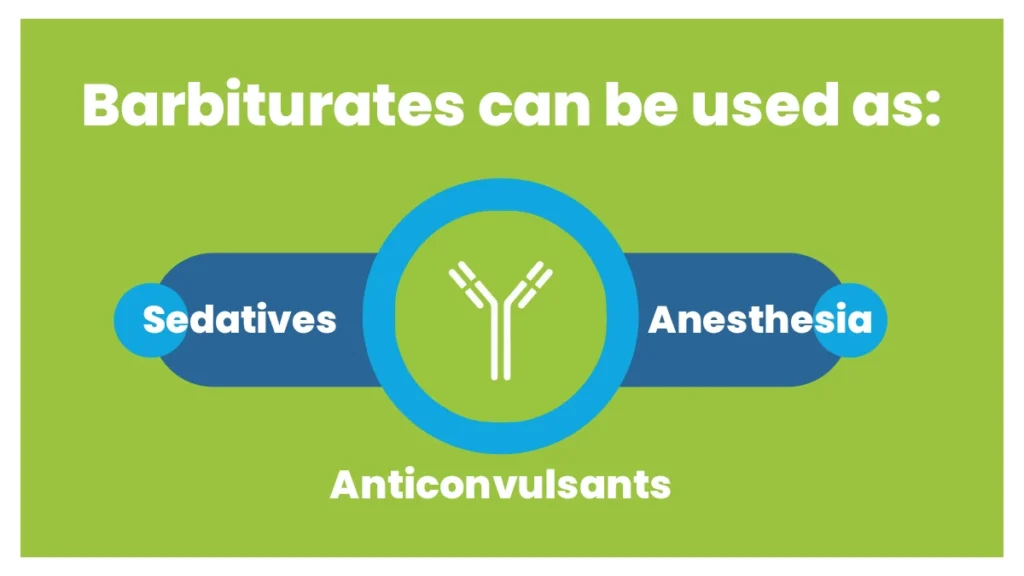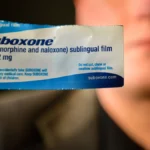Barbiturates are a type of medication that affects the central nervous system, acting as depressants. They are used to treat conditions like anxiety attacks and sleeping disorders. However, they can be habit-forming and may cause drowsiness.
Misuse can lead to severe physical and mental health issues or overdose. For individuals grappling with barbiturate-related problems, including addiction, seeking barbiturate addiction treatment is crucial. Keep reading to learn more about the uses of barbiturates.
Key Takeaways
Barbiturates are central nervous system (CNS) depressants used for anxiety but can be addictive. Here’s what you need to know:
- Barbiturates historically treated anxiety disorders and insomnia but faced challenges due to addiction and overdose potential.
- Barbiturates affect brain chemistry, enhancing GABA activity and inducing relaxation, but misuse poses severe risks.
- Short-term effects include impaired judgment and low blood pressure. Long-term barbiturate use may lead to substance use disorder.
Seek support for addiction at The Haven Detox-Little Rock. Call us today at (501) 271-3342.
A Closer Look at Barbiturates
Barbiturates, such as phenobarbital and secobarbital, are medications doctors prescribe to treat various conditions. These drugs have different uses, including managing anxiety, insomnia, and seizures.
However, caution is crucial due to their high potential for addiction and adverse effects. Short-acting barbiturates, like secobarbital, provide quick relief, while long-acting barbiturates, such as phenobarbital, have a more sustained impact.
Historical Background
Barbiturates have a significant history in the medical world, with their use dating back to the early 20th century. According to the National Institute of Health, in the 20th century, over 2500 barbiturates were synthesized, with 50 finding clinical use. Their widespread use, including both short-acting and long-acting forms, was notable.
Initially synthesized from barbituric acid, these drugs gained popularity for their soothing properties. In the United States, doctors commonly prescribe barbiturates to manage various mental health conditions.
However, concerns arose regarding their potential for addiction and the risk of overdose, leading to shifts in medical practice. The introduction of benzodiazepines as an alternative marked a transition away from barbiturates due to their perceived safer profile, particularly concerning heart rate and dosage control. Despite their historical prominence, the usage of barbiturates has become more limited in modern medicine.
How Barbiturates Interact with Brain Chemistry
Barbiturates, a drug introduced in the early 1900s, affect the brain by boosting the activity of gamma-aminobutyric acid (GABA receptors), a calming neurotransmitter. Initially prescribed for their calming and sleep-inducing effects, these drugs come in different forms and strengths. Yet, the gap between a helpful dose and an overdose is small, putting individuals at risk of severe consequences for the brain.
There are two kinds of barbiturates: long-acting ones that last a while and intermediate-acting ones that fall in between. If people misuse or get bound on these drugs, they can develop a barbiturate addiction, making things even more complicated.
Wide Range of Medical Uses

Barbiturates, recognized as central nervous system depressants, have various medicinal uses.
Barbiturates as Sedatives
One of the most common uses of barbiturates is as sedatives, helping induce relaxation and alleviate anxiety. They act on the central nervous system (CNS) to depress its activity, making them valuable when calming effects are needed.
Barbiturates as Anticonvulsants
Barbiturates also serve as anticonvulsants, assisting in managing seizures and convulsions by regulating abnormal electrical activity in the brain. Their role in stabilizing neural impulses makes them effective in controlling epileptic conditions.
Barbiturates as Anesthesia
In the field of anesthesia, barbiturates have historically played a vital role. They contribute to inducing a controlled state of blackout during medical procedures, though newer drugs have gradually replaced them for this purpose.
Other Medical Uses
Barbiturates, commonly known by street names such as “barbs” or “downers,” are a class of sedative-hypnotic drugs primarily prescribed for medical purposes. However, the misuse of these substances has given rise to non-medical applications, leading to concerns about substance use disorders and a high risk of overdose.
Non-Medical Barbiturate Use
Barbiturates, meant for medical reasons, are sometimes used differently for recreation or performance enhancement. That raises concerns about the risks involved as people explore these drugs beyond their intended purposes.
Recreational Barbiturate Use
One alarming aspect of barbiturate misuse involves recreational use, where individuals seek the desired effect of relaxation or euphoria. Street names like “yellow jackets” or “blue heavens” often refer to these substances. However, this non-medical usage poses significant dangers, especially when combined with alcohol.
Performance Enhancement Barbiturates
Some people prefer using barbiturates because it helps them perform better in sports or activities. Athletes might be interested in the calming effects of small amounts, hoping it makes them feel more relaxed or less anxious.
However, it’s not a good idea to misuse barbiturates for this. It’s discouraged because it can be risky, and safer options are available. It’s important to find healthier ways to manage stress and anxiety instead of turning to substances that can be harmful.
Risks and Side Effects of Barbiturate Use
Using barbiturates can have serious consequences. Let’s explore the potential risks and side effects.
Short-Term Side Effects
When someone takes barbiturates, they might experience short-term side effects—things that happen shortly after using the drug.
- Barbiturates are known for making people lethargic, often more than expected.
- Some individuals may feel lightheaded or unsteady on their feet after taking barbiturates.
- Speech can become unclear or difficult to understand, resembling the effects of alcohol intoxication.
- Barbiturates can affect decision-making abilities and increase the risk of engaging in risky behaviors.
- The drug can cause a drop in blood pressure, leading to feelings of weakness or faintness.
If someone is experiencing adverse effects from barbiturate use, seeking medical assistance, including mental health treatment, is essential for their well-being.
Long-Term Side Effects
Using barbiturates over a longer period can lead to more serious and lasting effects on health.
- Over time, the body can develop tolerance to barbiturates, requiring higher doses to achieve the same effects.
- Continued use can lead to physical and psychological dependence, where the person feels they need the drug to function normally.
- Barbiturates may negatively impact memory, concentration, and overall cognitive function with prolonged use.
- Paradoxically, long-term use can raise the risk of seizures, even in individuals without a history of seizure disorders.
- Regular use can progress to a substance use disorder, causing significant disruptions to daily life and well-being.
Understanding these long-term side effects is crucial for individuals and healthcare providers to make informed decisions about the use of barbiturates and to address any potential health concerns promptly.
Addiction and Overdose Risks
Recreational drugs, like barbiturates, can harm your health. Barbiturate abuse poses addiction and overdose risks. Symptoms of overdose, like trouble breathing and confusion, need urgent medical help. Treating a barbiturate overdose involves supportive care and dealing with the addiction.
Using these substances can lead to withdrawal symptoms, affecting mental health and brain function. Understanding the effects of barbiturates is crucial due to potential drug interactions, which may worsen substance abuse. These drugs impact GABAA receptors, vital for brain signaling and overall well-being.Recognizing possible drug interactions is vital for preventing complications and safeguarding mental health. Stay informed about recreational drug risks, prioritize your well-being, and seek support if needed.
Frequently Asked Questions (FAQ)
What drugs are considered barbiturates?
Barbiturates are a class of central nervous system depressant drugs that were once commonly prescribed for various medical purposes. Some examples of barbiturates include phenobarbital, pentobarbital, and secobarbital. These drugs act on the GABAA receptor in the brain, reducing neuronal excitability and producing a soothing effect.
What is the role of barbiturates?
The role of barbiturates was historically diverse, ranging from use as sleep aids and antianxiety medications to anesthesia induction in medical procedures. However, due to their high potential for abuse, addiction, and overdose, their medical use has significantly decreased. Benzodiazepines have largely replaced barbiturates as a safer alternative.
What is a barbiturate?
A barbiturate is a synthetic compound that derives from barbituric acid. It depresses the central nervous system, leading to effects such as sedation and relaxation. It’s important to note that the use of barbiturates carries serious risks, and their recreational or non-medical use is strongly discouraged due to the potential for harmful consequences on health and well-being.
Begin a Hopeful Journey with The Haven Detox-Little Rock
At The Haven Detox-Little Rock, we specialize in providing compassionate addiction treatment services. Our residential rehab program offers customized treatment plans addressing the root causes of addiction.
Discover the healing power of IV therapy, a cutting-edge approach to detox that ensures a comfortable and practical experience.Take the first step towards lasting recovery—contact us today at (501) 271-3342 for more information.





